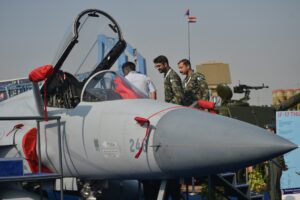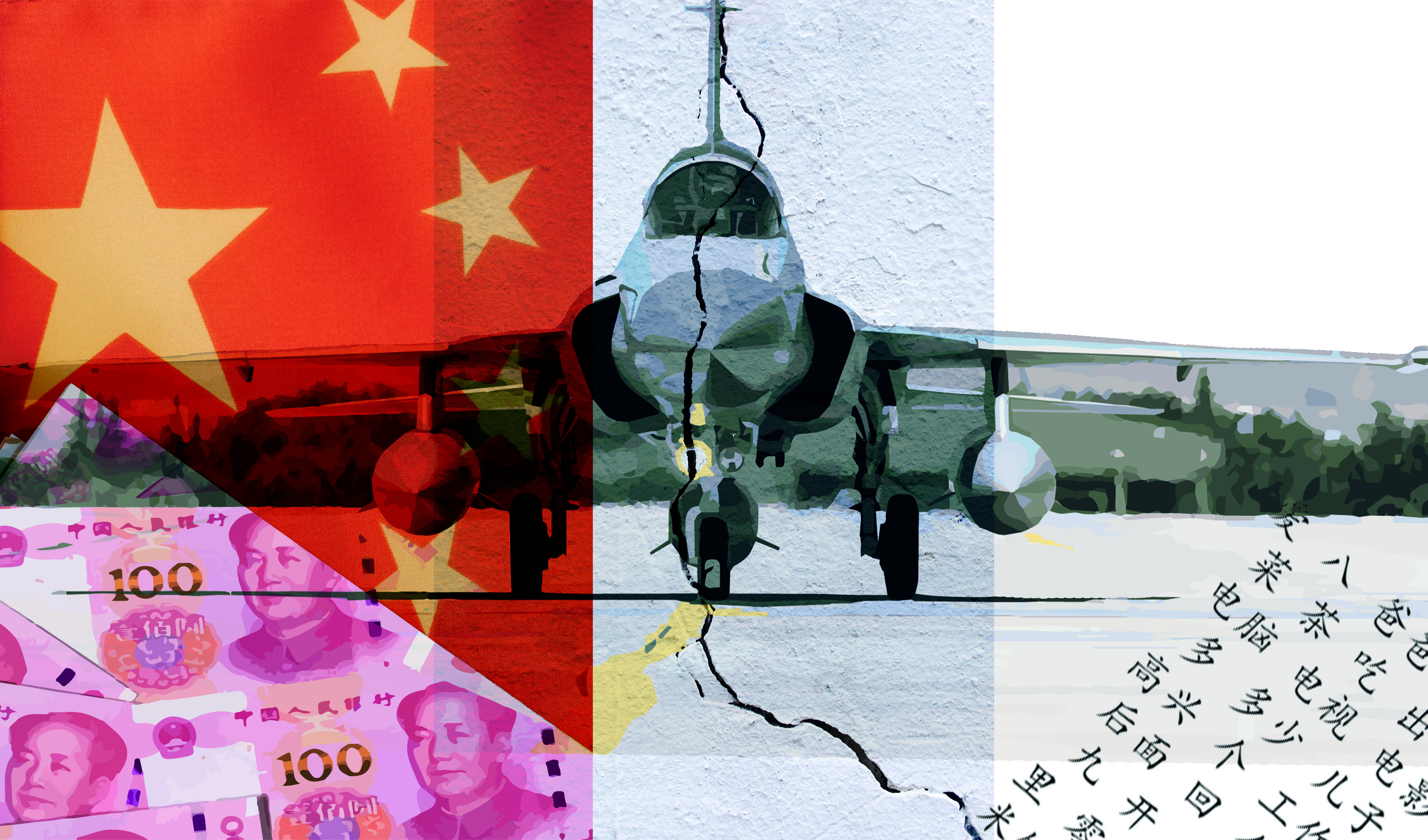In a global scenario where purchasing choices can determine a nation’s security and even the lives of its citizens and military, the quality of Chinese military equipment is once again on the spotlight for their unreliability. Growing concerns reached a tipping point following the situation in Burma.
“Yes, major concerns persist about the quality of Chinese products despite claims of improvements,” Euclides Tapia, professor of International Relations at the University of Panama, told Diálogo on October 3. “Comparison with industrialization in other countries increases doubts about quality standards in the Chinese industry.”
In November 2022, defense and aerospace industry news site Global Defense Corp reported that the Burmese military had grounded its Chinese JF-17 aircraft, due to serious structural and engine problems. The problems in Burma have yet to be fixed and currently, 11 JF-17 aircraft have been declared “unfit for operations.”
Mechanical failures
The Burma case exemplifies the need to be extremely cautious when making investments that put a nation’s security at stake. “This should serve as a clear example for other countries. We are talking about a product that is not trivial; if the quality does not meet expectations, the losses will be significant,” Tapia said.
According to India’s business magazine Business Today, Burma’s JF-17 Thunder were designed by China’s Chengdu Aircraft Industries Corporation but produced and supplied by Pakistan Aeronautical Complex between 2019 and 2021.
These aircraft are part of an agreement signed by the Burmese military junta in 2016 to procure the JF-17. Shortly after the delivery of the first batch, the Burmese Air Force was forced to ground the aircraft upon detecting malfunctions and structural defects, Business Today reported. Similar situations occurred with the new fleets acquired in 2022, the magazine added. Two years prior, in September 2020, a Pakistan Air Force JF-17 Thunder crashed near Pindigheb, as the aircraft’s stabilizer tail detached on its first flight at takeoff.

The aircraft in question, which use Russian engines, are expensive to operate and maintain. Although they have certain advanced systems, their materials and workmanship are of very low quality and they lack key capabilities such as Beyond Visual Range (BVR) missiles and intercept radar, which limits their combat effectiveness, Business Today reported.
In addition to these disadvantages, other problems include the lack of structural strength of the aircraft’s body to withstand gravitational force and high winds, Burma’s daily Narinjara News reported.
The Burmese military “is frustrated” that the aircraft’s inactivity is impeding its plans to strengthen its air power, Narinjara News reported.
“Buying such a Chinese product is like throwing money away and putting the security of its citizens at risk,” Tapia said. “It is crucial for governments to be more cautious when buying products from a nation that, like China, does not have the prestige of countries better positioned in the world’s quality ranking, such as the United States or Israel.”
China lacks the necessary international standards to be considered a reliable producer of foolproof weaponry, adds Tapia. Therefore, caution is essential when considering these military acquisitions. “Western products far outperform them,” he said.
Obstacles
Pakistan also faces challenges with other Chinese procured military equipment, such as a main battle tank artillery and air defense. These equipment inducted in recent years have experienced service and performance problems, raising concerns about the reliability and quality of Chinese procurements, India’s digital platform The Print India reported.
The Argentine Air Force is currently in negotiations to modernize its aircraft fleet in the short term. Among the options being considered are China’s JF-17, Argentina’s El Cronista newspaper reported on September 27.
Countries should be careful when considering military agreements with China because, although Beijing strives to sell products in military, space, and aeronautical areas, just like the Russians their quality control is abysmal and never meets international standards, Tapia said. “They neglect this because of their ambitions for international control.”
“The experience of Burma and the case of Sri Lanka, which ended up surrendering a port due to Chinese financial cheating, are clear examples. Countries must learn from and avoid these bitter experiences, to avoid compromising their sovereignty and resources in deals that could be detrimental in the short and long term,” Tapia added.
It is critical to ensure that the proposed weaponry has previously been used successfully before any purchase is considered. Otherwise, there is significant risk in acquiring Chinese products, which could be potentially dangerous.
“China faces major refusals to place its equipment unless it resorts to questionable practices such as bribing officials in the buying country. This is especially worrisome when it comes to military aircraft and weaponry. Interestingly, China does not use any JF-17 aircraft in its air force fleet,” Tapia concluded.









